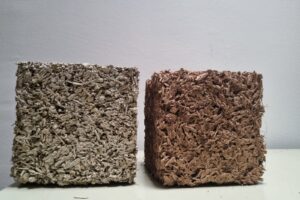
MERIT: An international educational ecosystem aimed at bridging Europe’s digital skills gap
November 30, 2022
CREEF: Use of synthetic macrofibres to reinforce concrete for elements of structural importance in marine environments
December 13, 202201/12/2022

The digital transformation is the basis for constructing the new digital society. In it, one of the main challenges is to put people at the centre and evolve towards a social and digital construction in the areas of benefits, human rights, ethics and sustainability based on fundamental pillars.
The consequences of the crisis caused by Covid-19 have been devastating from a health perspective, and everything indicates that it will also be devastating from economic and social well-being perspectives. Now, based on the use of data science, knowledge management and artificial intelligence and using data generated and gathered at the time, a snapshot can be obtained in just a few minutes of what is happening to people in situations of vulnerability. These analyses are critical to anticipate situations of crisis and social emergency.
As part of the INSESS-COVID19 project (Identification of emerging social needs as a result of Covid-19 and the impact on social services in the territory), in which the research centre Intelligent Data Science and Artificial Intelligence (IDEAI) of the Universitat Politècnica de Catalunya - BarcelonaTech (UPC) has participated, a line of technology has been developed with a mixed method. By combining data science techniques, knowledge management and artificial intelligence, the method has enabled social needs caused by Covid-19 to be identified and elements of support to be provided for the creation of public policies on social services in Catalonia. This will enable rapid, suitable responses to be generated to current situations.
The project revealed the vulnerabilities of the Catalan population during the early months of the pandemic and provides elements for decision-making for the 105 Basic Associations of Social Services of Catalonia to address these vulnerabilities.
This innovative approach is based on mechanisms for obtaining fast data, using participative processes that involve social services experts and citizens. The smart technology of INSESS-COVID19 has been key for decision-making and strategic planning during a disruptive situation in which there are no systemic support data.
A technology with many applications, at the service of government bodies
Beyond the pandemic, this technology can be applied in any other area with a survey aimed at a certain group. It is a tool of great value to establish participative policies and policies for managing unexpected situations, as it offers a flexible, safe channel for obtaining data from different groups of citizens in very short times, processing the data with advanced techniques and incorporating a smart generator of reports that are close to the final version, in a few hours.
The INSESS-COVID19 project, which began on 1 April 2020 and ended on 31 January 2021, had a total budget of €9,913. INSESS-COVID19 is the result of collaboration between IDEAI of the UPC and the iSocial Foundation.
Technology
Sector
You want to know more?
Related Projects
- A research team from the inLab FIB at the Universitat Politècnica de Catalunya - BarcelonaTech (UPC), together with the Asociación de Personas con Movilidad Reducida (AsoPMR), has taken part in the Spot4Dis project to enhance the mobility and autonomy of people with reduced mobility.
- The La Volta project foresees the construction of a large Catalan vault pergola within the Llars Mundet campus, in the Montbau neighbourhood (Horta-Guinardó district). This structure will become a new architectural landmark for Barcelona, combining traditional construction techniques with contemporary innovation. The project involves the Rehabilitation and Architectural Restoration Research Group (REARQ), at the Universitat Politècnica de Catalunya - BarcelonaTech (UPC), and is led by the Architects’ Association of Catalonia (COAC) and the Barcelona Provincial Council.
SATE-VEG: A system for energy renovation of buildings that helps reduce the urban heat island effect
Researchers from the Architecture, Energy and Environment (AiEM) group at the Universitat Politècnica de Catalunya - BarcelonaTech (UPC) have developed SATE-VEG, an external thermal insulation system with a vegetal coating that offers seasonally adaptive thermal behaviour, enhances urban biodiversity and promotes positive health effects. The system is made from organic materials, requires low maintenance and consumes minimal water.- A research team from the Interdisciplinary Group on Building Science and Technology (GICITED) at the Universitat Politècnica de Catalunya – BarcelonaTech (UPC) is leading the BioSAFE project, which aims to develop sustainable building envelopes —mainly façades— designed according to sustainability, comfort and safety criteria, with particular attention to their acoustic behaviour and fire performance.




